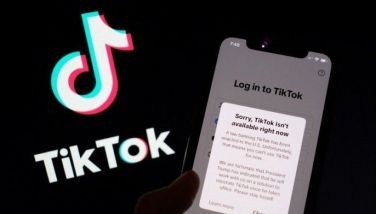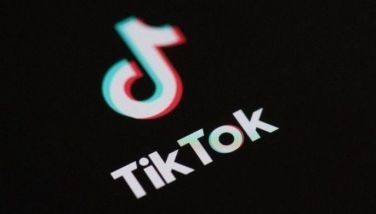Beyond hi’s and hello’s
July 5, 2001 | 12:00am
 Abbeygail Lucas knew the moment she reported for work that she had found her dream job. The pay was good, the office was ultra-modern, and her co-workers were among the best of her generation. To top it all, the work allowed her to engage in her favorite past time – using the telephone.
Abbeygail Lucas knew the moment she reported for work that she had found her dream job. The pay was good, the office was ultra-modern, and her co-workers were among the best of her generation. To top it all, the work allowed her to engage in her favorite past time – using the telephone.
"I love engaging in telebabad for hours," she says, recalling many nights spent on the phone with her boyfriend. "I can talk on the phone from 9 pm to 9 am non-stop."
Lucas, 20, was hired by Etelecare International, an American call center company, shortly after she finished college. She was one of 100 people, mostly young women, picked by Etelecare from over 10,000 applicants. She was hired because of her ability to speak English fluently.
Lucas worked for Etelecare for two months, answering phones eight hours a day. She and her fellow customer service representatives handled complaints and inquiries from customers of a telephone company in the US. In effect, their job was to solve problems of people on the other side of the globe, thousands of miles away.
Etelecare president Jim Franke was quoted in the company’s website as saying that the people working under him have accents that can easily pass for American. He says the American education received by his employees allowed them to understand American culture and work easily with customers in the United States.
"I heard someone joke that American television was good for something," he said.
During a recent briefing on an upcoming expo on e-services in the Philippines, Dr. William Torres, a key mover in the government’s IT and e-commerce council, said "there will be an explosion of call centers as more and more companies avail of high-quality but low-cost knowledge workers here."
Toby Monsod, assistant secretary of the Department of Trade and Industry, said the big number of English-speaking skilled workers in the Philippines is luring major US-based companies to set up backroom offices here.
Jeremy Rowe, a Singapore-based consultant on call centers, said that many companies were choosing the Philippines as call center base because of three factors – low cost of labor, their widespread command of English, and the warm and emphatic character of Filipino workers which makes them perfectly suited for customer-service work.
According to its website, Etelecare’s Franke chose the Philippines over India because of these factors. And there’s a fourth and fifth reason. Franke said he picked the Philippines because it has a deregulated telecom industry, unlike India which still suffers from a state telecom monopoly.
"Here we can tap into well-working landlines but in India we’ll have to rely on satellite connections that are usually plagued by delays," he said.
Franke’s fifth reason was the low attrition of workers in the country. He said in the US, 40 percent of call center personnel transfer to higher paying jobs as their skills increase, but in the Philippines, the rate is only 10 percent.
"The extremely low turnover in the Philippines means more experienced and better trained agents," he pointed out. This also means that Etelecare can invest in extensive training and development of its workers without fear of losing them too soon and too often.
 People Support is another. It started operations in early 2000 in Makati and now employs about 400 local people, 350 of them highly-trained phone operators who are called "answer care representatives."
People Support is another. It started operations in early 2000 in Makati and now employs about 400 local people, 350 of them highly-trained phone operators who are called "answer care representatives."
Local firms have also jumped into the fray. Telecom giant PLDT and the Lopez and Ayala groups are reportedly re-evaluating their call center requirements and business potentials.
EasyCall Communication, which pioneered paging in the Philippines, has shifted part of its business into outsourced call center services for corporate clients. It has raised its capitalization to P200 million for this purpose.
The Lopez group, for its part, has C3, a centralized call center for its telecommunications arm Bayantel and cable firm SkyCable. Reports say at least 33 percent of Skycable’s new subscribers were acquired through the call center.
For Abbeygail Lucas, the answer seems to be no. She said it did not take her long to realize that answering phones and solving the problems of people she hardly knows is not her idea of a dream job. She resigned from Etelecare after two months (and after undergoing five weeks of training) because of work pressures.
"We’re watched every moment, every call is recorded and we are graded by how we handle the calls," she said. She revealed that it was only the P20,000-plus-a-month salary that made her last that long, not the satisfaction that she got from solving the problems of people from another nation.
"Most of the calls we received were irate calls and callers thought we were Americans, too. Sometimes the callers even swore, which made the work more irritating," she said.
Not everyone at Etelecare shares Lucas’ opinion, though.
One employee who identified herself simply as "Kat" said she has gotten used to the pressure of handling callers’ problems. "It’s just work for me," she said, adding that her night-shift work at Etelecare is perfect for her insomnia.
A management graduate from an exclusive school, Kat considers Etelecare a mere stepping stone, a transition job to keep her busy and hone her skills for better employment.
"Of course I would want a better job. But for now, this suits me just fine," she said.
BrandSpace Articles
<
>
- Latest
Latest
Latest
January 19, 2025 - 12:39pm
By Alex Pigman | January 19, 2025 - 12:39pm
January 19, 2025 - 10:05am
By Alex Pigman | January 19, 2025 - 10:05am
January 6, 2025 - 11:05pm
January 6, 2025 - 11:05pm
December 1, 2024 - 3:59pm
December 1, 2024 - 3:59pm
Recommended

























